This is a "Mute" swan. Its distinguishing feature is its orange bill. A mature, male Mute swan has a notable black bulbous "knob" or large bump at the beginning of its bill. Scientifically, Mute swans belong to the Anatidae family of waterfowl.
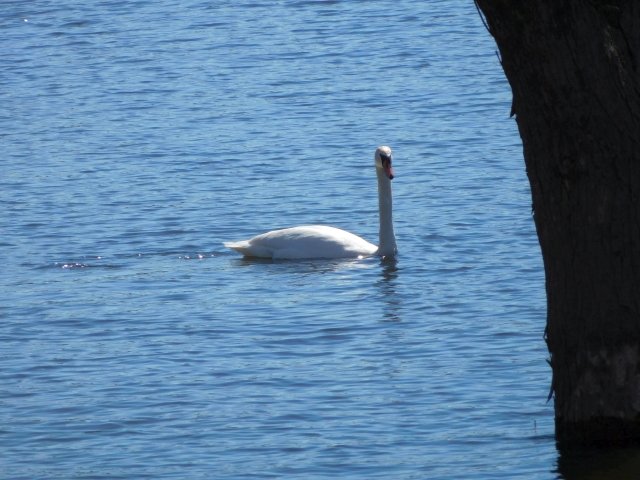
Mute swans are native to Asia and Europe but were an introduced species to North America.
They were named "Mute" because allegedly, they don't make as much noise as other types of swans.
@knarly327, took this video and uploaded it to Youtube on April 15, 2016.
It will give you a sense for what Mutes actually sound like when they vocalize. In the video you'll see our dog, who was 16 years old at the time. The swans came right in to greet him. Less than a month later, we had to put our dog down. We think the swans knew that he was really old and that's why they weren't aggressive towards him.
Mute swans nest near the water's edge and build mounds out of the surrounding vegetation.
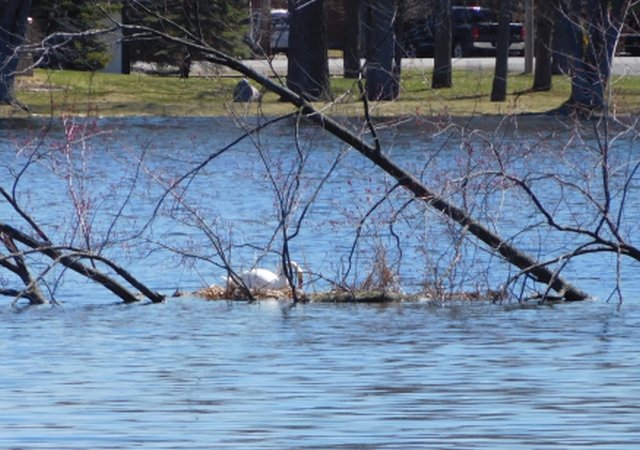
They are monogamous and are extremely territorial, often claiming a whole lake per family of swans.
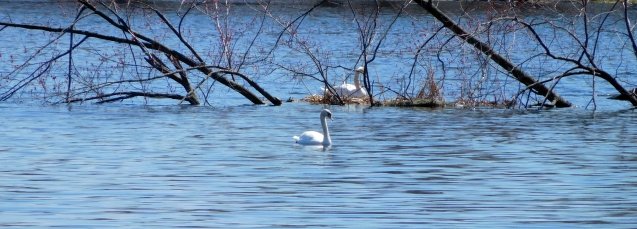
Both males and females take turns minding the nest. Typically, the female will sit on the eggs the majority of the time, but the male will sit on the nest, while the female forages for food and feeds. The incubation period is approximately 36 days and the female will lay up to 10 eggs. The offspring are referred to as cygnets. Cygnets are grey when they are born and remain a grey colour until they are about a year old. This coincides with the same time that they are ready to leave their parents. Mute swans are the second largest type of swan.
"Trumpeter" swans are the largest type of swan.
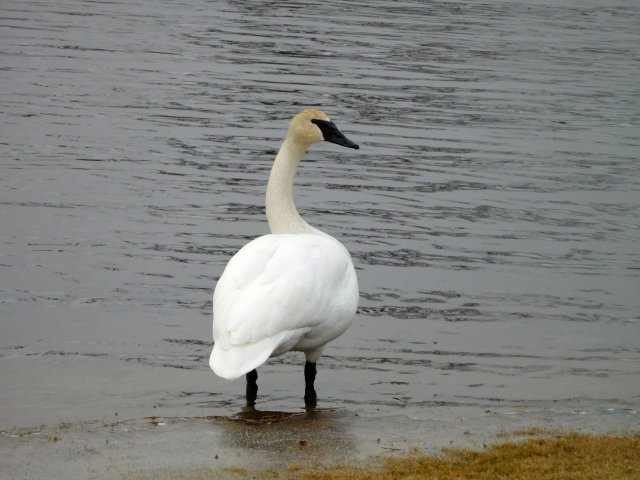
Trumpeter swans can weigh over 30 lbs and have a wing span of 6 feet. The heaviest known Trumpeter weighed 38 lbs and had a wing span over 10 feet. That's one giant bird...that can fly, I might add!
The black bill, the shape of the body and the length of the neck are what distinguishes a Trumpeter swan from a Mute swan.
Trumpeters have offspring like Mutes do and their young remain grey in colour for the first year of their lives, too.

In this photo, you can see the adult male, the white adult female with her head in the water feeding and 3 of their offspring that are not quite a year old yet. They still have grey feathers on their wings and necks.
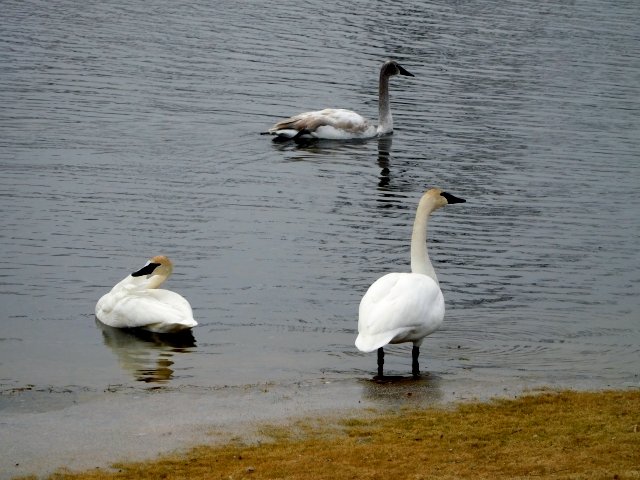
Trumpeter swans are native to North America but they are decidedly shier than Mutes. Their preference is not to live close to humans, enjoying uninhabited bodies of fresh water, instead.
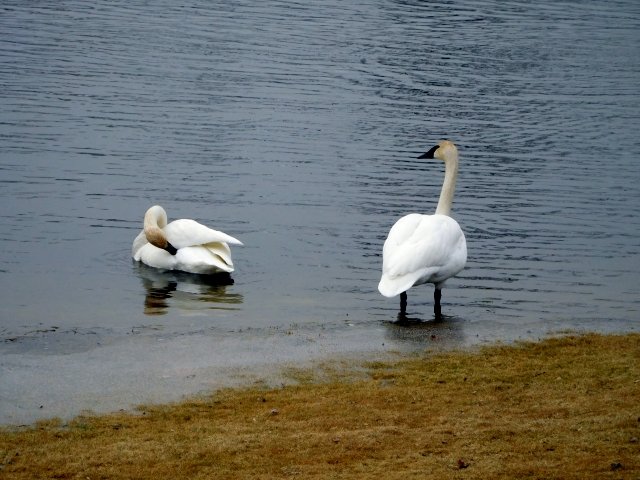
We were fortunate to be able to capture some photos of a Trumpeter swan family in our backyard. They were just passing through and did not stick around very long. This was likely due to the Mutes, who are not that picky and have chosen to co-habitat along side us.
Here are some additional photos that I took and thought you might enjoy:
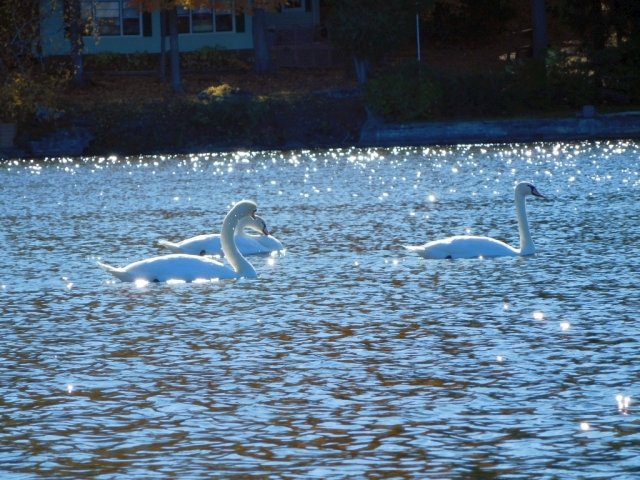
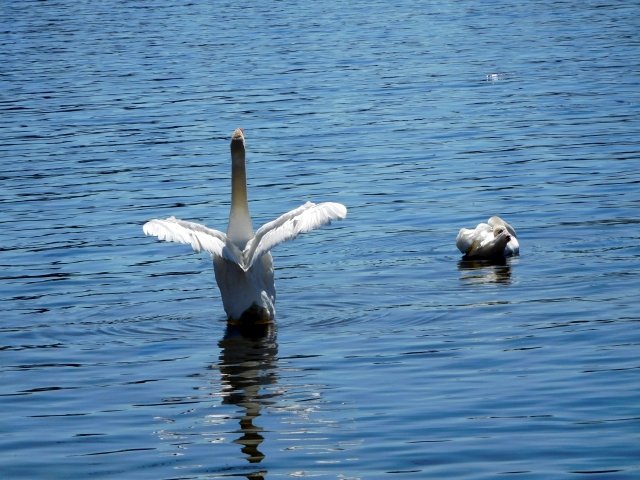
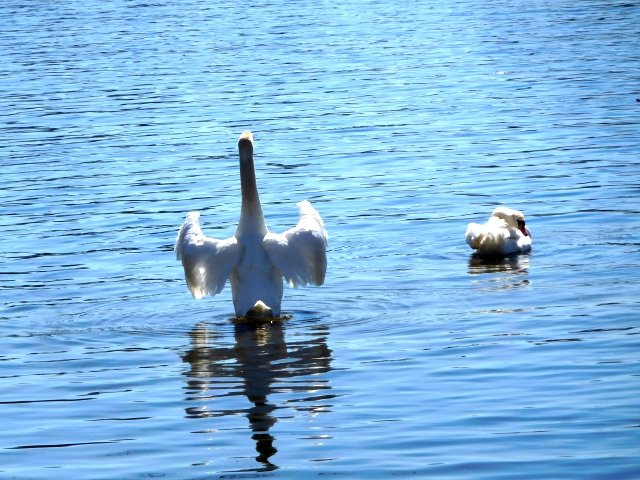
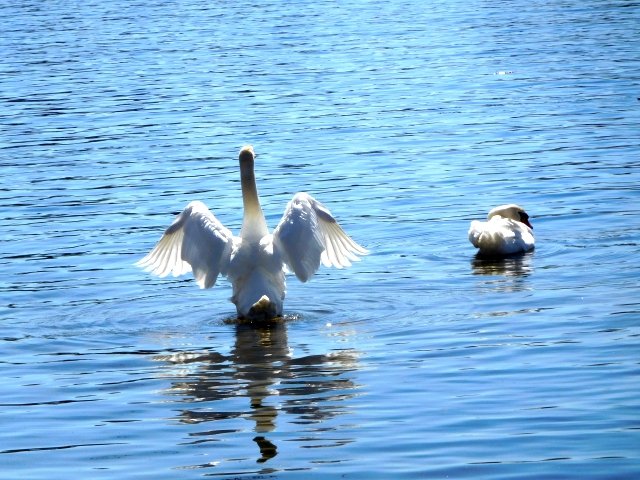

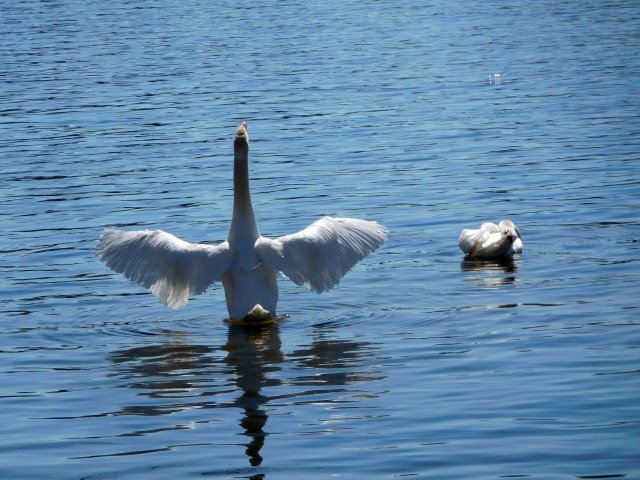

Most of these photos were taken with a Nikon S7000, from our backyard. We live on a long freshwater river and it provides a wonderful habitat for wildlife, birds, fish, turtles, water-snakes, and frogs. It's quite the ecosystem and community.
I welcome your comments and I invite you to follow me on my journey.
~ Rebecca Ryan

